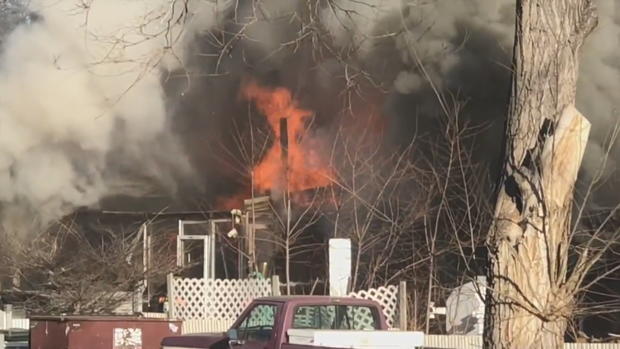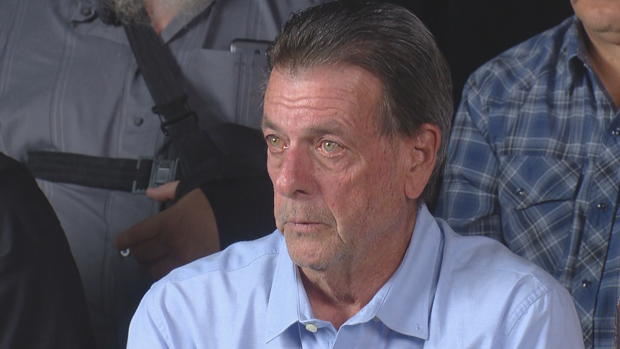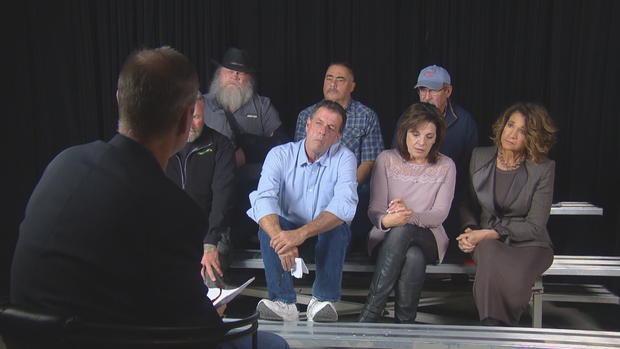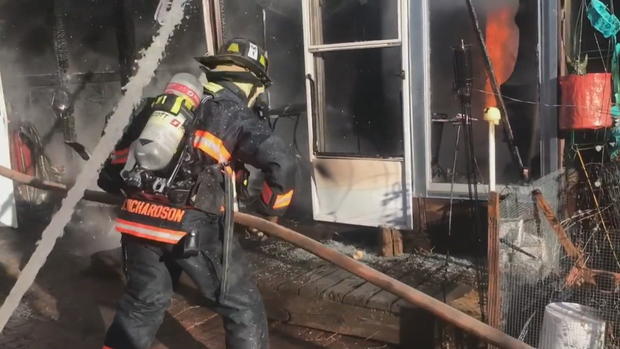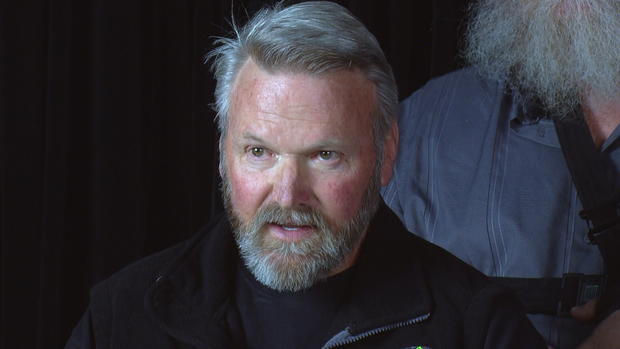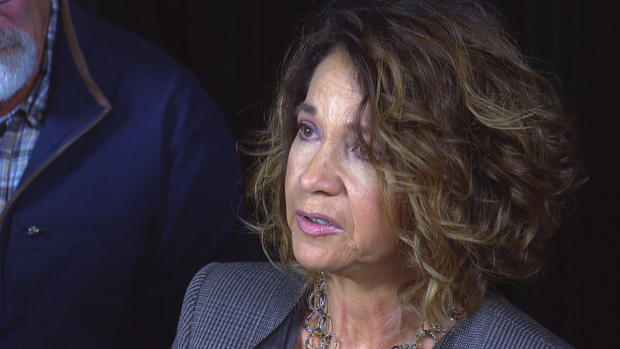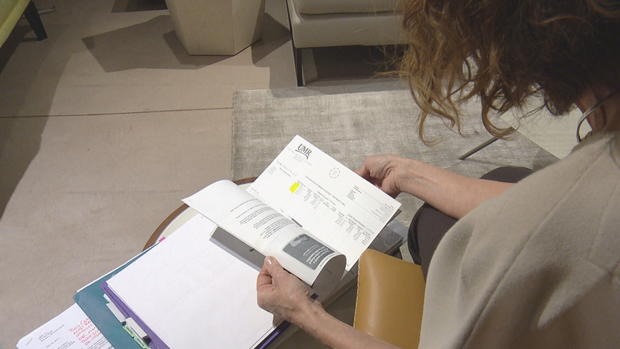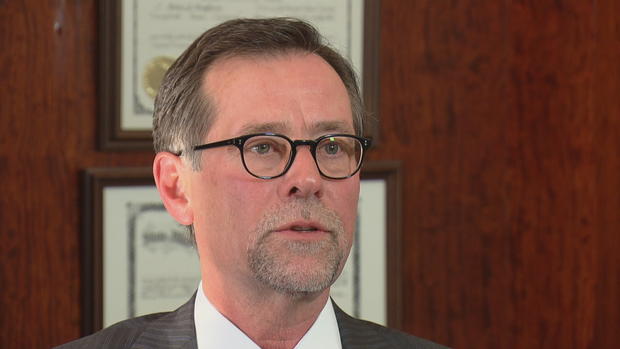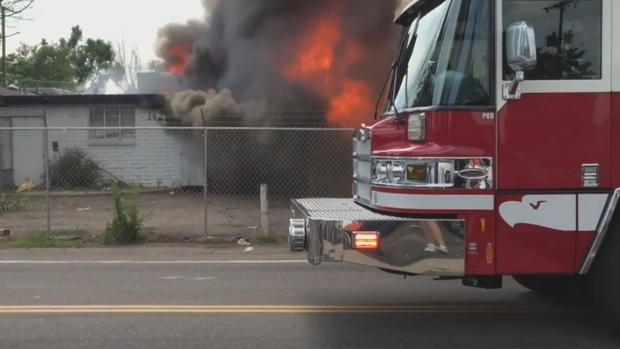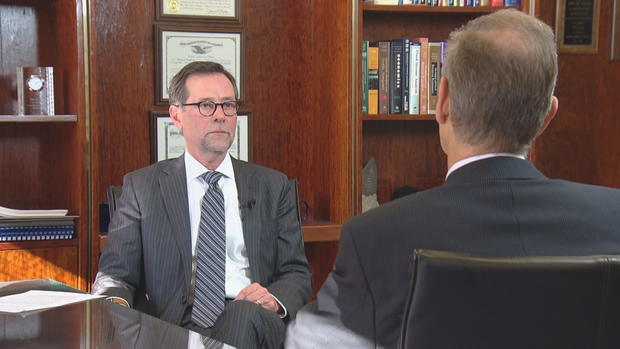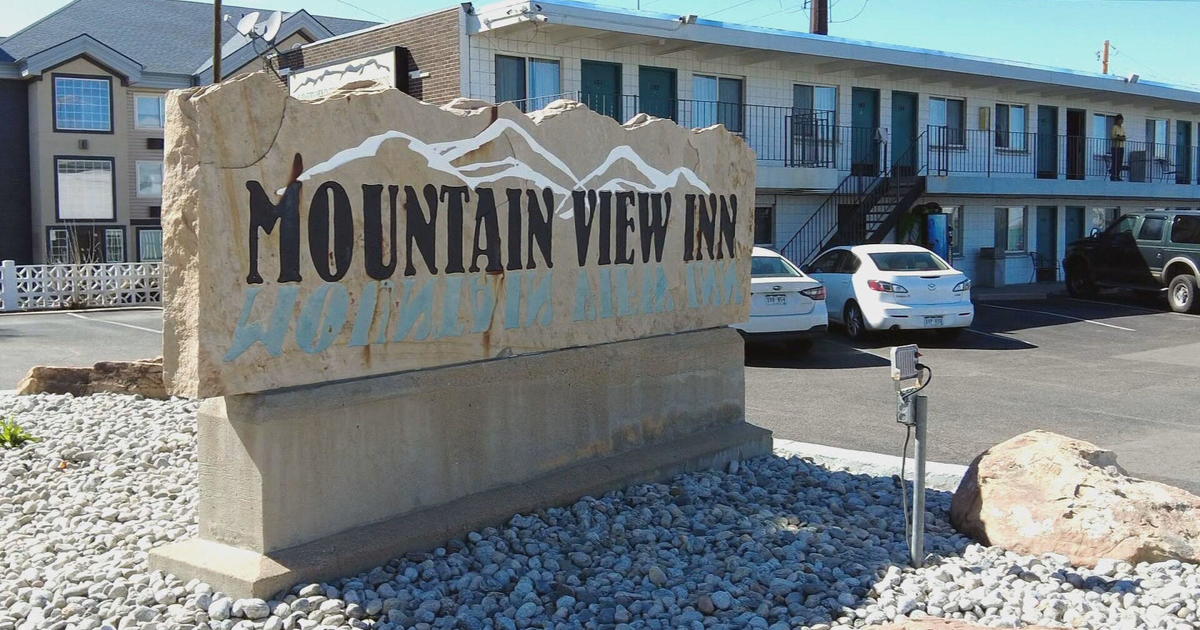'They Threw Us Away': Retired Firefighters Sue West Metro Fire District Over Medical Benefits
JEFFERSON COUNTY, Colo. (CBS4)- They were engineers, fire investigators and firefighters. Now, as many as 74 former firefighters from the West Metro Fire District are part of a class action lawsuit claiming the department mishandled roughly $1.8 million in a retiree health account.
"We scraped people up off the street. I have things that haunt me and I expected this to be here. What they are doing is outrageous," said Tim O'Hayre, a former West Metro firefighter and one of the plaintiffs in the lawsuit filed in Jefferson County.
O'Hayre said during his 19 years as a firefighter, he always believed he would receive departmental health insurance between the time he retired, and age 65, when Medicare kicks in.
"And we thought by agreement, by contracts that we would have health protection until we turned 65, our families. That is the way it was."
O'Hayre and the other retirees were not able to provide documentation of that kind of promise however.
Still, many retirees contributed a portion of their salaries to a department administered health insurance fund beginning in 1996, believing the money would be used to defray their medical insurance during their retirements. The department also contributed to the fund annually as did current West Metro firefighters.
But in 2015, the department decided it would not be able to fund retiree medical benefits terming them an "unfunded liability." The department said if it continued funding retiree medical benefits, it could potentially fall $15 million behind in funding and would have little money left to actually pay for firefighting operations. The retirees were notified that their medical insurance would be phased out and end in 2017.
But when the health trust was closed down, with about $1.8 million on the books, that money was turned over to current firefighters for their use with their medical expenses when they retired. None of the money was distributed to current retirees.
Administrators from West Metro Fire declined to be interviewed but provided a statement to CBS4 saying continuing to pay retiree medical benefits would have been an "unfunded liability… The District… firmly believes it took appropriate action in winding down the Health Trust in a fair and equitable manner."
Seven retirees and their spouses interviewed by CBS4, said their deductibles and premiums have now tripled and quadrupled since they lost their health benefits and they say they are scraping to get by.
Doug Bower, 63, spent 26 years with the department as an engineer and fire investigator retiring in 2005. He says he has gone through four bouts of cancer in recent years "and now I can't get the follow up care I need because I can't afford it. "
He says since losing his department subsidized health insurance, his deductible has skyrocketed from $3,500 to $12,000 and his premiums rose from about $260 a month to $900 a month. Bower said he stands to lose his home as he is in collections for about $9,600 in medical bills. Bower says he feels the department betrayed him.
Craig Stevens, 64, retired in 2009 as an engineer. He said he did the job with the understanding and belief that the department would subsidize his medical insurance until he turned 65.
"That's why we took the risk every day. You went to work, you took the risk; it irritates me to death because promises made, promises not kept."
Samantha Bales is married to a former West Metro firefighter, Alan Bales. She told CBS4 she had breast cancer when she learned she and her husband would be losing their department medical benefits.
So, she says she chose to have a double mastectomy "because I didn't know if I would have health insurance. And my husband spent 25 years saving other people so he could provide me that care and him that care. The one thing I was going to get out of this job was health insurance. But now I have nothing. These guys honored their commitment to their job and they didn't honor us. It's so wrong in so many ways. They stole from us, and it's not right."
The lawsuit between West Metro retirees and the fire district reflects a broader national trend of departments realizing they risk financial problems if they continue to fund first responder retirement benefits.
Dan Slack with Colorado's Fire and Police Pension Association said curtailing retirement benefits "is becoming an increasing problem across the country."
He said departments are struggling with the costs of subsidizing retiree benefits and are scrambling to find low cost solutions.
Slack said first responders generally end up retiring around age 55, many with injuries and disabilities due to the physical nature of their work. So, he said bridging the gap until age 65 is costly. One solution being discussed; lowering the age of Medicare eligibility to 55 for first responders. Slack says that proposal has been kicked around nationally and in other states as a possible solution.
But with no immediate solution in sight, dozens of West Metro retirees and their spouses are now focused on May, when their lawsuit against the district is scheduled to play out in court.
With tears in his eyes, O'Hayre said, "We put our lives on the line, protected each other and they swept us out the door."
Statement from West Metro Fire:
The District has been sued by certain retired employees who would like the District to continue to make payments towards their health benefits. Unfortunately, due to funding issues, retiree health benefits were ended as of December 31, 2017.
Historically, the District provided health benefits to both active employees as well as qualified retirees through a Health Trust, which was primarily funded and operated by the District. Within the Health Trust, a separate account was created to specifically hold funds that were intended for retiree health benefits; this was called the Retiree Health Account. Both active employees of the District as well as current retirees contributed to the Retiree Health Account. Active employees contributed to the Retiree Health Account in contemplation of one day receiving benefits when they reached retirement.
In 2011, the District's auditors reported that due to changes in accounting procedures for governmental entities the Health Trust caused a multi-million-dollar unfunded liability to the District. Carrying such an unfunded liability would have consistently reflected negatively on the financial health of the District, so the District began discussions to determine how best to terminate the Health Trust with a goal of phasing out the Health Trust completely by December 31, 2017.
By 2015, the District had established a procedure for winding down the Health Trust. The District determined what it would cost to provide then current retirees (as of 2015) with continued healthcare benefits through December 2017. While this took care of the current retirees, the District felt that those active employees who had been paying in to the Retiree Health Account were entitled to a portion of those funds since they would no longer be receiving the health benefit they had been paying for.
As a result, the District, in discussions with staff and members of the local firefighters' union, established a years of service qualification to equitably apportion the remainder of the Retiree Health Account funds to the active employees that had been paying into the Retiree Health Account during their respective terms of employment. This resulted in a distribution to all qualifying active employees based on their respective years of service in 2016.
All of those funds were distributed to either a retirement health savings account or a 457 Plan for each employee, at the option of the employee, to assist those employees in paying healthcare expenses when they reached retirement, which was the primary purpose of the Retiree Health Account.
The current lawsuit is challenging the District's choice to disburse a portion of the Retiree Health Account funds to the active employees. The District is defending this suit and firmly believes it took appropriate action in winding down the Health Trust in a fair and equitable manner.
